

SCS Engineers is excited to announce the appointment of Vice President Jeffrey J. Grill as the new Business Unit Director of SCS Energy. SCS Directors are responsible for geographic business areas or, in this case, a specialty practice in renewable energy under the brand SCS Energy.
Jeff joined SCS Energy in 2019, leading the process engineering team responsible for the design of biogas to renewable natural gas & energy facilities. He has over 20 years of experience in energy and renewable natural gas (RNG) project development. His background is in chemical process engineering and a wide array of engineering and management services, from conceptual to detailed design and implementation. His core values are quality, consistency, and engineering excellence.
Jeff earned multiple B.S. degrees in Chemical Engineering and Materials Engineering at the University of Connecticut. He has professional affiliations and sits on committees with the Renewable Natural Gas Coalition and the American Biogas Council.
During his career, he has built an execution portfolio of 19 patents and applications and designed over 50 Renewable Natural Gas processing plants with a combined designed production capacity equivalent to 16% of California’s 2021 residential natural gas consumption. That is equivalent to almost one and a half percent of the U.S. residential natural gas consumption, equating to a reduction of over 4.1 million tons of CO2 GHG emissions or 2.1 million tons of coal burned annually. The capacity of the landfill gas to pipeline quality RNG projects that Jeff has designed or supervised totals over 335 MMCFD for landfill gas to RNG and over 34 MMCFD for dairy digester and municipal WWTP gas to RNG.
His work at SCS Energy helps many clients and communities, especially those considering landfill gas to RNG to lower carbon footprints and create renewable energy or renewable fuels. Built on one of the U.S.’s longest and most successful biogas practices in North America, SCS Energy designs, constructs, and operates more landfill gas and digester gas to energy facilities than any other engineering firm in the nation. Its biogas and biomass experts provide turn-key services for RNG plants using byproducts from dairy, swine, or poultry farms into carbon-negative renewable energy.
“Jeff’s colleagues and clients are excited to see him take leadership of SCS Energy from Bob Viers, who will now serve in a leadership advisory role. SCS clients attribute their high-quality results to SCS Energy’s industry-leading expertise in biogas gas utilization, combined with the firm’s wealth of knowledge in solid waste management and regulatory compliance,” stated SCS CEO Doug Doerr.
“Our team is a powerhouse of exceptional talent, filled with professionals whose dedication, passion, and pursuit of excellence leave me in awe. Their unwavering commitment to one another and our collective success is inspiring and humbling. I am grateful for the opportunity to work alongside them and deeply appreciate the legacy of Jeff Pierce and Bob Viers,” stated Jeffrey Grill.
Learn More About Biogas and Renewable Natural Gas (RNG):
On July 16, 2024, the Volusia County Council approved a contract with SCS Engineers to develop a new 271-acre Class I landfill. The landfill, located at the southeast expansion area (SEA) of the Tomoka Farms Road Landfill, is part of the County’s long-term plan to meet its Class I sanitary solid waste disposal needs for over a century. The Public Works will oversee the project, Solid Waste Division, under the guidance of the County’s Project Manager.
SCS Engineers will provide a range of engineering services, including developing a solid waste permit application package for the Florida Department of Environmental Protection. They will design the landfill gas collection and capture system, supporting infrastructure, geotechnical needs, and leachate collection to protect groundwater and soil. Additionally, they will provide support services for selecting a construction contractor for the first 20-acre disposal cell at the new landfill.
SCS will collaborate with the County to identify any constraints that may impact the cost or constructability of future projects. They will also explore potential opportunities associated with this project to ensure the design complements and maximizes future development opportunities.
Landfills are complex systems integrating liquid and gas management systems to protect the environment. Volusia County selected SCS Engineers for their expertise in designing modern landfills that adhere to strict state and federal regulatory and quality control guidelines. The firm’s understanding of how current landfill operations interrelate with the development of SEA was a key factor in their selection.
Modern landfills are ecosystems that isolate waste from surrounding environments, such as groundwater, air, and rain. While the County’s reuse, recycling, and organics management programs significantly reduce waste in landfills, the SEA development provides an essential service that will continue uninterrupted as communities transition to even more sustainable programs and infrastructure to reuse landfill gas and other byproducts.
Vice President Dan Cooper, P.E., expressed his gratitude, stating, “SCS is privileged that Volusia County has entrusted us as a partner to sustainably engineer SEA’s safe and efficient development. We’re honored to assist the Solid Waste Division in their mission to support the citizens and the environment.”
Additional Resources:
The Association for Environmental Health and Soils (AEHS) is hosting the 40th Annual International (East Coast) Conference on Soils, Sediments, Water, and Energy in Amherst, Massachusetts, October 21-24, 2024. The AEHS conference attracts participants from government agencies, environmental engineering firms, consulting companies, industry, and academia and serves as a networking hub for various associations. The program features technical workshops, presentation sessions, and an exhibit hall. It also offers continuing education credits (please check with your specific board for applicability). SCS recommends attending this conference for its valuable insights and networking opportunities.
SCS Engineers and a Pennsylvania Department of Conservation and Natural Resources (DCNR) state geologist presented a webinar as part of the Pennsylvania Council of Professional Geologists (PCPG) educational series. The educational webinar is timely as Governor Josh Shapiro recently signed Senate Bill 831 into law, creating a regulatory framework for the Commonwealth’s carbon capture, utilization, and sequestration (CCUS).
The webinar, titled CCUS in the US and a Glimpse into What is Possible in Pennsylvania, Part I, includes SCS geologists from across the nation providing a technical overview of CCUS project planning, permitting, operations, and closure referencing current, active Class VI projects based on case studies. The webinar is available for a nominal fee on PCPG’s website, and professional credits (PDH or CEU) are available as allowed by your licensing state and entity.
The DCNR’s state geologist provides an overview of the CCUS work in Pennsylvania by DCNR for over 20 years, including coordinating with the Department of Energy, other states’ geological surveys, and public-private organizations to explore CCUS in the Commonwealth and neighboring states.
Questions and Follow-Up
During the live webinar, SCS received multiple inquiries from the audience, similar to our clients’ questions. We’ve created a separate video to answer them, which is available on the SCS website at the bottom of the carbon capture and DWI page. We hope you find the videos informative and valuable. Our geologists are passionate about their work and helping clients navigate regulations and implement sustainable projects.
SCS is planning Part 2 of the PCPG webinar series in Fall 2024. If there are topics you’d like to see covered during that webinar, please reach out to PA practice leader Christina Helms, PG, LSRP, at
Pennsylvania Senate Bill 831 and Other States
Our professionals continue to work on Class VI projects with multiple clients across the US where primacy has been granted, or states have regulations in place, including the outlook for CCUS in Pennsylvania.
Pennsylvania Senate Bill 831 establishes the legal and regulatory framework for the Commonwealth’s potential carbon dioxide capture, utilization, and sequestration (CCUS). SB831 provides “for the injection of carbon dioxide into an underground reservoir for the purpose of carbon sequestration, for the ownership of pore space in strata below surface lands and waters of the Commonwealth, for conveyance of the surface ownership of real property; imposing duties on the Department of Environmental Protection and the Environmental Hearing Board; and establishing the Carbon Dioxide Storage Facility Fund.”
View a copy of the Bill here: https://www.legis.state.pa.us/cfdocs/billinfo/billinfo.cfm?sYear=2023&sInd=0&body=S&type=B&bn=0831.
CCUS | CCS | Deep Well Educational Video Resources:
Published CCUS Resources:
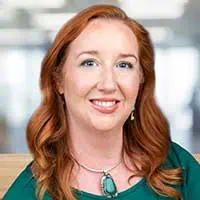
Jenny’s passion for mentoring staff and building client relationships makes her a valuable asset to our team.
Outside work, she enjoys camping in southern Missouri and exploring the Ozark trails on ATVs with her family.
Congratulations, Jenny!
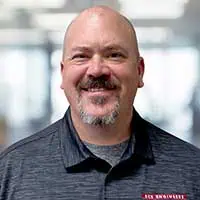
Not only is Morgan a skilled project manager, but he also excels as a mentor, guiding young engineers in the principles of civil engineering design. His diverse talents have made a significant impact on SCS, particularly in the Energy and Construction sectors.
Originally from a ranch in southern Colorado, Morgan’s journey led him to the Colorado School of Mines and eventually to his role as a City Engineer, where he met his wife Tess, a journalist covering City activities. Together, they are proud parents to three children and are currently immersed in planning their eldest’s wedding, attending swim meets, and cheering loudly at soccer games.
Please join us in congratulating Morgan on this well-deserved promotion. We look forward to witnessing his continued success and contributions to our organization.
Please contact SCS Engineers if you are interested in working with our clients to make the world safer and cleaner!
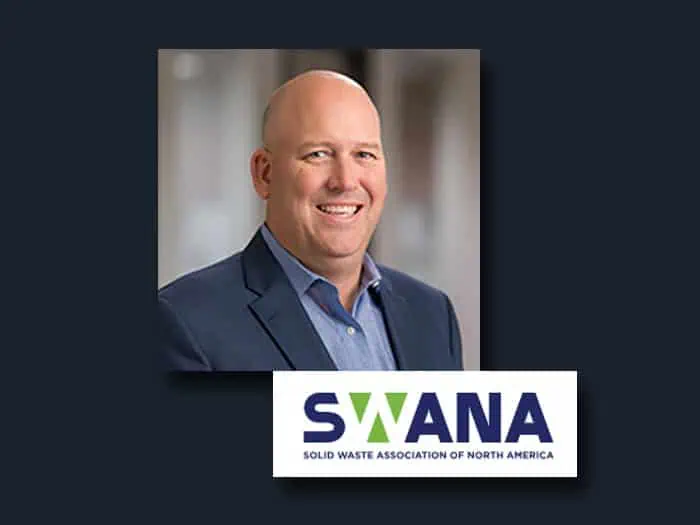
Daniel Cooper and twenty other individuals devoted to resource management were recently elected to the Solid Waste Association of North America’s (SWANA) Board. SWANA is governed by its 21-member Board of Directors (BOD) from across the continent, who are responsible for setting strategic direction and overseeing the association’s operations and policy positions.
The Board of Directors receives input from an Advisory Board of delegates from all SWANA chapters, technical divisions, private sectors, and young professional members.
Daniel (Dan) Cooper is associated with SWANA’s Landfill Gas (LFG) Technical Division and the Sunshine Chapter. He brings two decades of experience in the solid waste consulting industry and specializes in LFG collection systems, including design, permitting, compliance, testing, and construction.
Dan regularly publishes articles and presents as a recognized LFG expert at regional and national forums. Dan is an SCS Vice President and a regional leader of SCS’s solid waste engineering practice, focusing on landfill, landfill gas, solid waste facilities, and solid waste systems financial studies.
Dan’s experience extends beyond the design and construction phase of LFG systems. He is a go-to resource for Landfill gas to Energy, LFG system compliance, and Title V/Clean Air Act regulatory guidance.
Dan is a Professional Engineer in Alabama, Florida, Mississippi, Louisiana, and Tennessee. He earned his ME in Environmental Engineering at the University of South Florida and his BS in Chemical Engineering at the University of Colorado, Boulder.
In a recent press release, Amy Lestition Burke, SWANA’s Executive Director & CEO, said,
We are thrilled to welcome our new board members and leaders. Their extensive experience and passion for environmental stewardship will be invaluable as we navigate challenges and opportunities in our industry. Together, we aim to foster collaboration, drive innovation, promote safety, and educate others on best practices that enhance the sustainability and efficiency of waste and resource management practices.

Internally, Tim is known for his humility and collaborative nature, always willing to share his knowledge and mentor colleagues with his client-first approach. In recognition of his outstanding contributions, Tim has been promoted to Project Advisor, where he will continue to deliver exceptional service to clients at a high technical level.
Outside of work, Tim celebrates important milestones in his personal life, including 20 years of marriage to his wife Heidi and raising two sons. In his free time, Tim enjoys quality time with his family and sharing his passion for music by playing trumpet and euphonium alongside his sons at local churches.
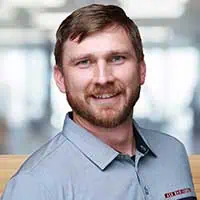
Bret is passionate about developing our staff in Overland Park and ensuring their professional growth. His business acumen and analytical skills are vital in addressing business challenges and driving continued success.
Congratulations, Bret, on your well-deserved promotion!
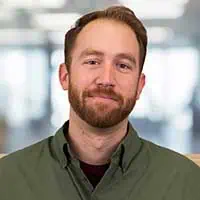
A native of north-central Iowa and a graduate of Iowa State University, Kevin brings a wealth of experience from his time at John Deere and ADM before transitioning to consulting in 2016. Outside of work, Kevin enjoys relaxing on his deck, listening to music with his fiancée, and tending to their lively menagerie of two dogs, ducks, and chickens.
Please join us in congratulating Kevin on his well-deserved promotion. We are excited to see where his leadership takes us in the future!
Please contact SCS Engineers if you are interested in working with our clients to make the world safer and cleaner!
SCS Engineers is working to complete a regional assessment of rare earth elements and other critical mineral (CM) opportunities within parts of Iowa, Kansas, Missouri, Nebraska, Oklahoma, and the Osage Nation as part of a multi-state effort led by the Kansas Geological Survey (Critical Minerals in Coaly Strata of the Cherokee-Forest City Basin | netl.doe.gov).
This project is part of a multi-year Carbon Ore, Rare Earth, and Critical Minerals (CORE-CM, FOA-0002364) initiative funded by the U.S. Department of Energy to address all aspects of establishing a domestic critical mineral supply chain and the reuse of high-value, nonfuel, carbon-based resources. SCS Engineers is working with stakeholders within the Cherokee-Forest City Basin to develop assessments and strategies for waste stream reuse, infrastructural capacities and capabilities, technology development, outreach, and public-private partnerships.
The work from this project will identify information, technology, and infrastructure gaps that will need to be addressed to develop economic opportunities for critical mineral production, refining, and utilization specific to the Cherokee-Forest City Basin. These assessments may be utilized in future Phase II and Phase III components of the planned CORE-CM program for potential implementation within the region.
This study along with others have the potential to reduce U.S. reliance on foreign sources of critical minerals that are essential for electronics, renewable energy technologies, advanced manufacturing, and defense applications. It could also provide coal mines with additional markets for their product, transforming coal from something that is burned into a 21st century feedstock for advanced manufacturing.
Department of Energy Program Goals and Funding
Some research efforts are focused on unconventional and secondary feedstocks, such as coal and coal refuse, coal fly ash, acid mine drainage, mine waste, oil- and gas-produced waters, and brines extracted as part of carbon sequestration efforts. These feedstocks are known to contain elevated concentrations of CMMs, potentially in economic quantities, however their occurrence and distribution is not well constrained.
In April 2024, the U.S. Department of Energy’s (DOE) Office of Fossil Energy and Carbon Management (FECM) announced up to $60 million in funding to create regional teams to support the development of critical mineral and materials supply chains and novel high-value, nonfuel carbon-based products from unconventional and secondary feedstocks, such as coal and coal by-products, effluent waters from oil and natural gas development and production, and acid mine drainage. Realizing the critical mineral and materials potential in these feedstocks would enable the United States to rebuild a domestic supply chain for rare earth elements and other critical minerals and materials—which support high-tech manufacturing and the production of components for clean energy technologies—and reduce our dependence on international supply chains.
The funding period is now closed but projects selected under this funding opportunity will be announced in October and will continue the work of DOE’s CORE-CM Initiative, and expand the focus from the basin scale to a larger, regional scale. CORE-CM projects will develop and implement strategies that enable each specific basin to realize its full economic potential for producing REE, CM and high-value, nonfuel, carbon-based products from basin-contained resources.
Learn More Here:
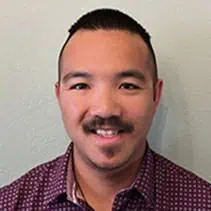
In March 2024, the EPA launched a new Office of Climate Adaptation and Sustainability that supports efforts to build resilience to climate change and promote sustainability in support of the agency’s mission and its partnerships. Federal agencies have been making progress in efforts to build adaptive capacity and resilience across federal operations.
Today’s publication of EPA’s 2024-2027 Climate Adaptation Plan is part of a coordinated release of more than twenty federal agencies’ climate adaptation plans that highlight efforts across the federal government. The Plan describes agency actions to address the impacts of climate change and help build a more climate-resilient nation. The plan expands the agency’s efforts to ensure its programs, facilities, workforce, and operations are increasingly resilient to climate change impacts.
Highlights from EPA’s 2024-2027 Climate Adaptation Plan are included below.
Fostering a Climate-Ready Workforce – The EPA is building a climate-literate workforce through ongoing education and training to ensure staff are equipped with an understanding of projected climate impacts, the vulnerability of EPA programs to these impacts, and adaptation approaches. One example is the agency-wide Climate Conversations webinar series helping to build a community of practice and encourages peer-to-peer sharing of experiences.
Building Facility Resilience – EPA is continuing to conduct facility resiliency assessments to identify vulnerabilities to the impacts of climate change and make recommendations to increase facility resilience.
Developing Climate-Resilient Supply Chains – EPA has included an assessment of climate hazard risk as part of its overall Agency Supply Chain Risk Management plan. The agency plans to conduct supply chain risk assessments under the Program Management Improvement Accountability Act and the Federal Information Technology Acquisition Reform Act in fiscal year 2024.
Integrating Climate Resilience into External Funding Opportunities – EPA is modernizing its financial assistance programs to encourage investments by communities and Tribes that are more resilient in an era of climate change. To support this effort, the EPA launched an internal Climate-Resilient Investments Clearinghouse website to help managers of financial assistance programs incorporate climate adaptation and resilience considerations in the investment decisions the EPA makes each day.
Applying Climate Data and Tools to Decision Making – EPA is equipping communities and the recipients of financial resources with the tools, data, information, and technical support they need to assess their climate risks and develop the climate-resilience solutions most appropriate for them.
Integrating Climate Adaptation into Rulemaking Processes – EPA is integrating climate adaptation into its rulemaking processes where appropriate and in keeping with our statutory authorities to ensure they are effective even as the climate changes. For example, on March 14, 2024, EPA finalized a rule requiring a broad array of facilities that manage hazardous materials to develop response plans to prepare for the largest foreseeable discharges in adverse weather conditions, including more extreme weather conditions expected as the climate changes. EPA is also committed to applying climate change and environmental justice policy principles through National Environmental Policy Act reviews.
Additional Climate Adaption Resources:
SCS Engineers announces that Erik Martig is now the project director and organics leader in the Southwest region covering California, Arizona, Nevada, New Mexico, and Utah. Martig’s expertise in compost systems design, operations, and management aligns with and supports SCS clients moving to organics management as a strategy to reduce greenhouse gases and reuse organic material productively. His office is in Pleasanton, California.
As a Certified Compost Operations Manager, Martig has over a decade of experience producing results for public and private clients such as L.A. Compost, San Mateo County Resource Conservation District, The Heal Project Farm, and clients across the U.S.
SCS Engineers’ Organics Management teams help communities evaluate their waste streams and create custom programs using circular economy strategies that produce high-grade compost. Instead of treating organic material as waste filling up landfills, they produce a product good for the environment. These programs are launching all across the U.S. in small and large communities because they are effective and sustainable but require expansive knowledge and training.
Martig’s project management expertise includes developing project charters and teams that serve all stakeholders, custom design, environmental compliance, financing/funding from grant programs, and safety to create and sustain long-term programs. SCS provides pilot programs for entities wishing to test before they invest in the technology.
Among his professional accolades, Martig has presented at industry events such as the BioCycle West Coast Conference and the U.S. Composting Council to share insights with others. The Solid Waste Association of North America recognized him with its Unsung Heroes Award in 2015 for his work as Program Manager at GrowNYC, developing and increasing New York City’s network of residential food scrap drop-off sites.
Robert Lange, former director of the Bureau of Waste Prevention Reuse and Recycling at DSNY, stated,
Erik Martig has played a critical role in developing New York City’s network of residential food scrap drop-off sites. As Program Manager at GrowNYC, Martig significantly grew the number of drop-off opportunities at farmers’ markets throughout all five of NYC’s boroughs. Additionally, he developed a system for managing the organics collected through the drop-off program, which included providing a portion of the organics collected to community-based composting sites and thereby generating high-quality finished compost to be used by local public greening initiatives.
“Community-Scale Composting Systems,” A Comprehensive Practical Guide for Closing the Food System Loop and Solving Our Waste Crisis by James McSweeney highlights Martig’s urban composting programs as best practices.
“As the Southwest team lead for SCS Engineers’ composting programs, Martig brings a fresh perspective to our clients who expect high quality and technical expertise to advance their programs,” says Vice President Greg McCarron, SCS’s national expert on organics. “They’ll get that from Erik and his team.”
Composting and Organics Management Resources: